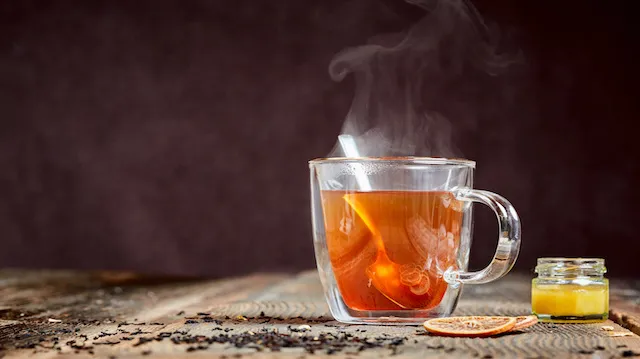Do you enjoy a cup of green tea? Or do you think it tastes like drinking grass? Many people do not enjoy the taste of green tea. However, even if you don’t like the most delicate jasmine green tea, you still have many healthy tea options to choose from. The following healthy beverages share some of the same health benefits as green tea, but with different flavor profiles.
Why drink tea?
According to research from Harvard Health, tea has numerous health benefits. Studies show that individuals who drink tea regularly are at reduced risk for cancer, heart disease, stroke, osteoporosis, and even the common cold. Green tea may provide even more health benefits and help keep excess pounds from sticking to your waistline. All tea contains powerful antioxidants that can be difficult to get elsewhere.
Alternatives to green tea
Green tea may be the poster tea for health, but if you drink these other teas, you will still enjoy many health benefits.
Oolong
Oolong tea is a fruity, fresh tea that is not as bitter as black tea but not as grassy as green tea. Oolong tea has been linked with improvements in antioxidant levels and a reduction in skin rashes and other skin problems.
White
White tea is a subtle, gentle tea. It is just slightly darker than water with a flavor that is barely detectable. White tea is high in antioxidants and is the perfect replacement if you do not enjoy green tea. Studies on white tea have found that in test tubes, white tea blocks DNA mutations that can cause tumors to form. Animal studies have found that white tea reduces the spread and growth of colon tumors.
Black
Black tea does not produce a black beverage, its name comes from the colour of the tea leaves. Common flavors of black tea include Earl Grey and Darjeeling. Drinking black tea regularly has been linked with a reduction in colon cancer, heart disease and cavities.
Pu-erh

Herbal tea
Teas made with herbs such as ginger and peppermint are not technically true tea, but they do provide a variety of health benefits. The health benefits of herbal tea will differ depending on the herb used to brew the tea. Dandelion tea, for example, is linked with improvements in digestion and helps with detoxification.
How to brew the perfect cup of tea
- Heat water until it is just barely boiling. Place the dry leaves into a tea infuser, and place the infuser into a cup or mug. Alternatively, place the dry leaves into a teapot. Pour the water over the tea leaves.
- For light tea, let the tea steep for about two minutes but no longer. For darker tea, allow the tea to steep for three to five minutes.
- Once the desired strength is achieved, either remove the infuser from your cup, or pour the tea from the teapot through a strainer and into a cup.
Enjoy!
—The Alternative Daily
Sources:
http://www.health.harvard.edu/press_releases/health-benefits-linked-to-drinking-tea
http://www.ncbi.nlm.nih.gov/pubmed/8592959
https://www.auckland.ac.nz/en/about/news-events-and-notices/news/news-2015/05/flavonoids-reduce-cold-and-cough-risk-.html
http://www.sciencedirect.com/science/article/pii/S1383571801002005
http://carcin.oxfordjournals.org/content/24/2/263.short
http://www.sciencedirect.com/science/article/pii/S053155650900062X
http://www.ncbi.nlm.nih.gov/pmc/articles/PMC2788186
http://www.ncbi.nlm.nih.gov/pmc/articles/PMC3018636

